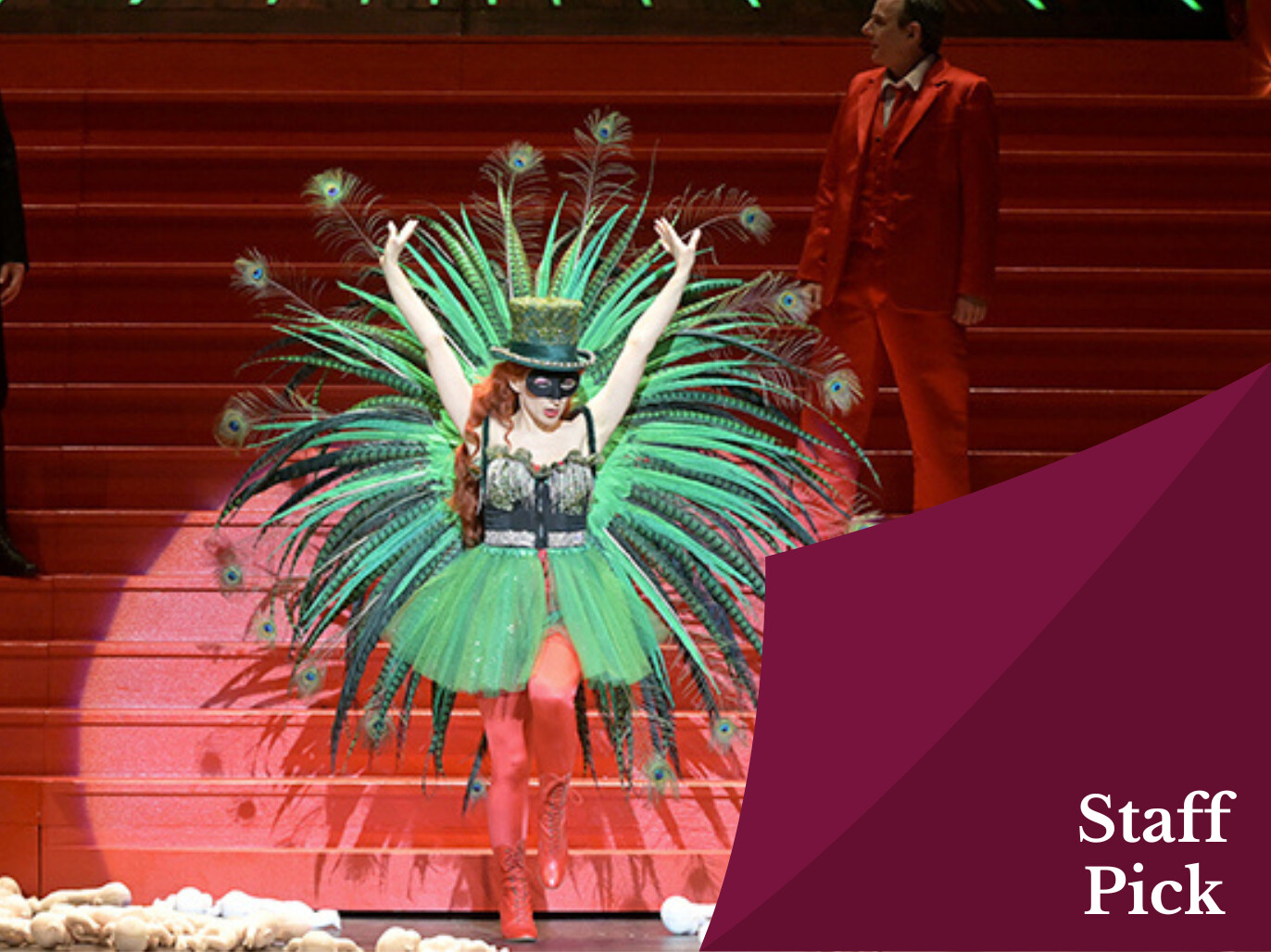When I saw David Hockney’s fantastical sets for Poulenc’s Les Mamelles de Tirésias (The Breasts of Tiresias) at an exhibition in Paris last week, I felt immediately inspired to revisit the opera in our catalogue. I never thought I would enjoy a surrealist opera so much!
Composed in 1947 and named after Guillaume Apollinaire’s novel of the same name, Les Mamelles de Tirésias spins the tale of Thérèse who decides to become a man (Tirésias) in order to circumvent the societal expectation that she should bear children. In retaliation, her husband (with no given name, may I add) devises a way to have children without women. After many twists and turns, the couple finally reconciles.

